Much like the other people in Hunza, Shahida Parveen begins her day early around 6am, with a healthy routine and an inspiring lifestyle that tourists visiting the valley from all over the world admire. After tending to the livestock and finishing other domestic chores, she heads out to a community centre in Karimabad, where with other proficient female artisans, she crafts tangible stories.
Cross stitch or ‘Iraghi chuk’ in their local language Burushaski, is her forte like many other Hunza women. It is also known as ‘Palm kok’ in upper Hunza. Belonging to a large family with six siblings, Shahida had her future chalked out ever since she completed her Bachelors in education.
“There is no concept of a ‘bechari aurat’ [a pitiable, weak woman] in Hunza,” she explains, a tad shy but with a down-to-earth demeanour, “We are all economically empowered and there is hardly any household in Hunza that is not educated. Women who own land are associated with agriculture, others have jobs and some are entrepreneurs. Most importantly, all women are skilled in handicraft — be it embroidery or cross stitch — a skill that is being passed through generations.”
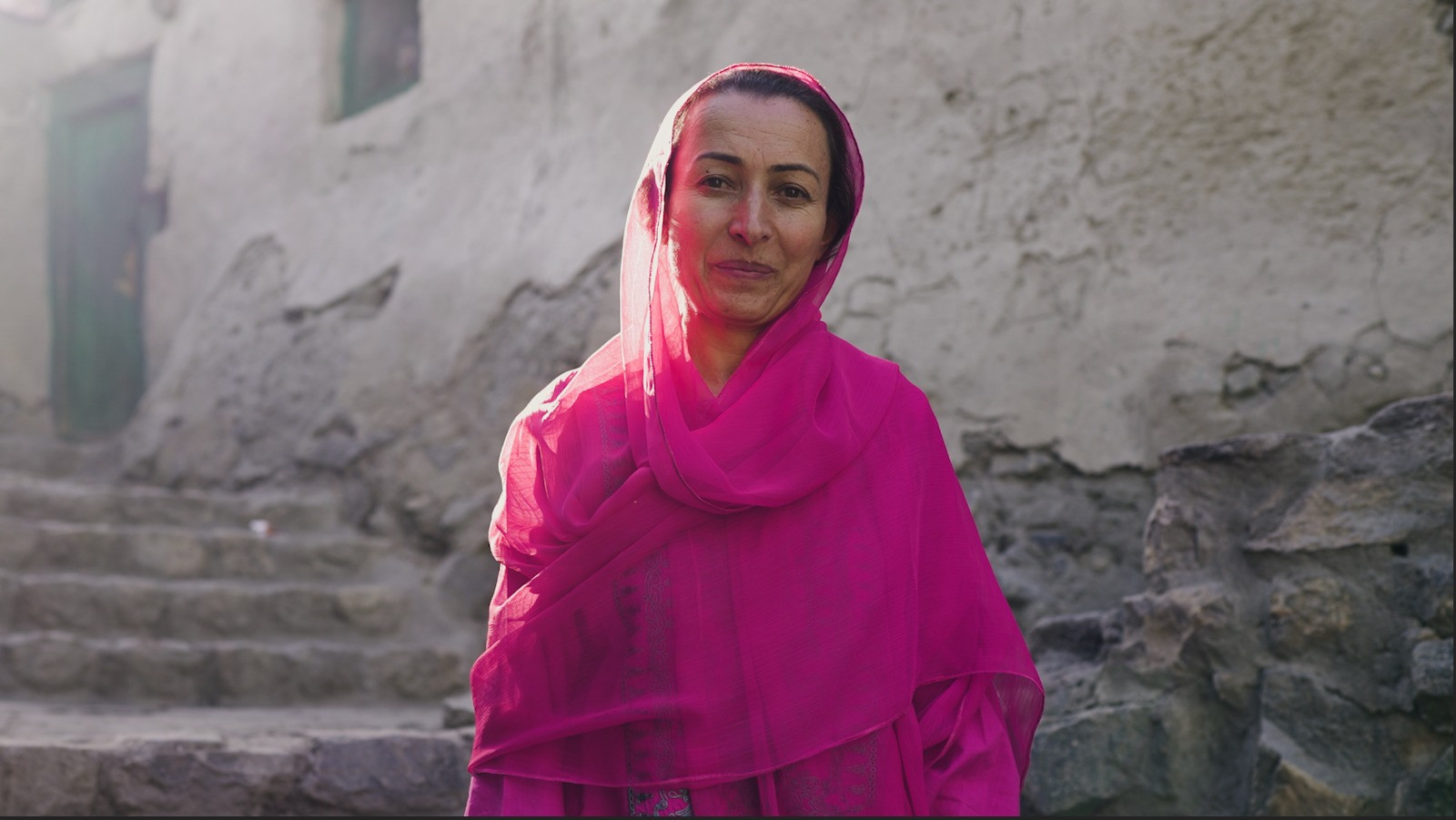
Shahida has turned her cultural heritage into a successful community business, thanks to her creative talent and savvy business skills. She shares her story as she lays out apricots, a fruit grown abundantly in Hunza, to dry in the sun. A saffron-coloured harmony appears against a green backdrop, inevitably reminding me of the song ‘Fields of gold’ that seems so apt in the calm surroundings punctuated with melodious calls of the Eurasian magpie. The family dries and sells their homegrown apricots as a side hustle, which in good weather conditions take about four to five days to dehydrate. Apricot juice and apricot kernel oil are other specialties that help them generate substantial income.
Shahida explains that in addition to household chores, women in Hunza also engage in agriculture during the short annual season of about four to five months, while the rest of the year is dedicated to managing home. “It is imperative that we juggle between the options available, considering the need for better education for our children and the well-being of our families.” Given their literacy rate of 98%, these are high-priority values for the people of Hunza, and are reflected through their amiable nature and impressive intellect. “I used to work for an NGO that collected cross-stitch handicrafts from local artisans and sold those ahead, thus helping us showcase our art,” she says. “However, after a span of three years the grant period was exhausted, and eventually the NGO was closed down. That’s when I got over a dozen women organised to establish our own business Karakoram Handicrafts, which works on the same idea, and has emerged as a testament to our art.” A decade on, Shahida has been able to develop her market and penetrate into several parts of the country through social media.
Through a seller, they were able to develop a market in Islamabad, Lahore, and Karachi. However, the pandemic turned out to be a dampener and business suffered, creating doubts about it being lucrative in the long run. The connection with Karachi was lost as the world took a break. In two years, when the external market environment eased out, with sheer persistence, Shahida stood tall and gradually regained a better market reach.
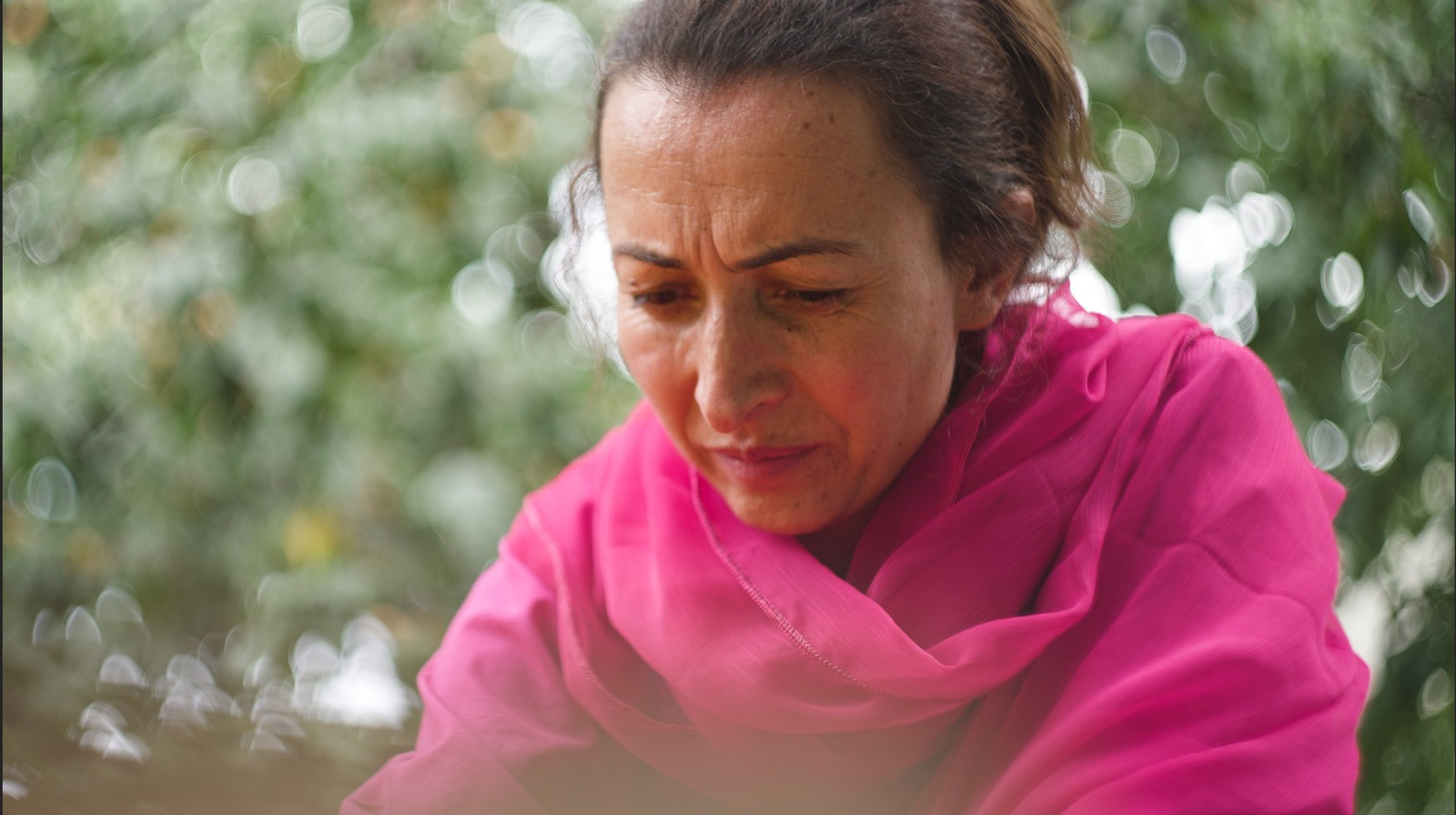
But being able to maintain her existing customer base and acquiring repeat customers, while enjoying a nationwide presence, was only possible through e-commerce.
She decided to enter the world of digital marketing and explore the concept of the "zero moment of truth" introduced by Google, which empowers customers to research products before making a purchase. She also enrolled in a digital marketing course being offered by Daraz in collaboration with Aga Khan Rural Support Programme which enabled her to open her shop on the platform.
In its quest to highlight the cultural heritage of Pakistan, Daraz’s ‘Proudly Pakistani’ programme helps provide a thriving ground to established and emerging artisans and communities from across the country, especially in underserved regions.
Presently, Karakoram Handicrafts caters to a growing demand for hand-crafted fashion, household, and lifestyle products such as bedsheets, cushions, purses, caps, dresses and clutches, etc, through convenience and premium pricing. Initially, the product line was limited to hats and coats, but the business has come a long way with innovative ideas. “Our motifs used to be inspired by nature such as trees, leaves, mountains, etc.,” says Shahida. “Whave reinvented these with a modern touch and it has significantly helped us to scale our business.”
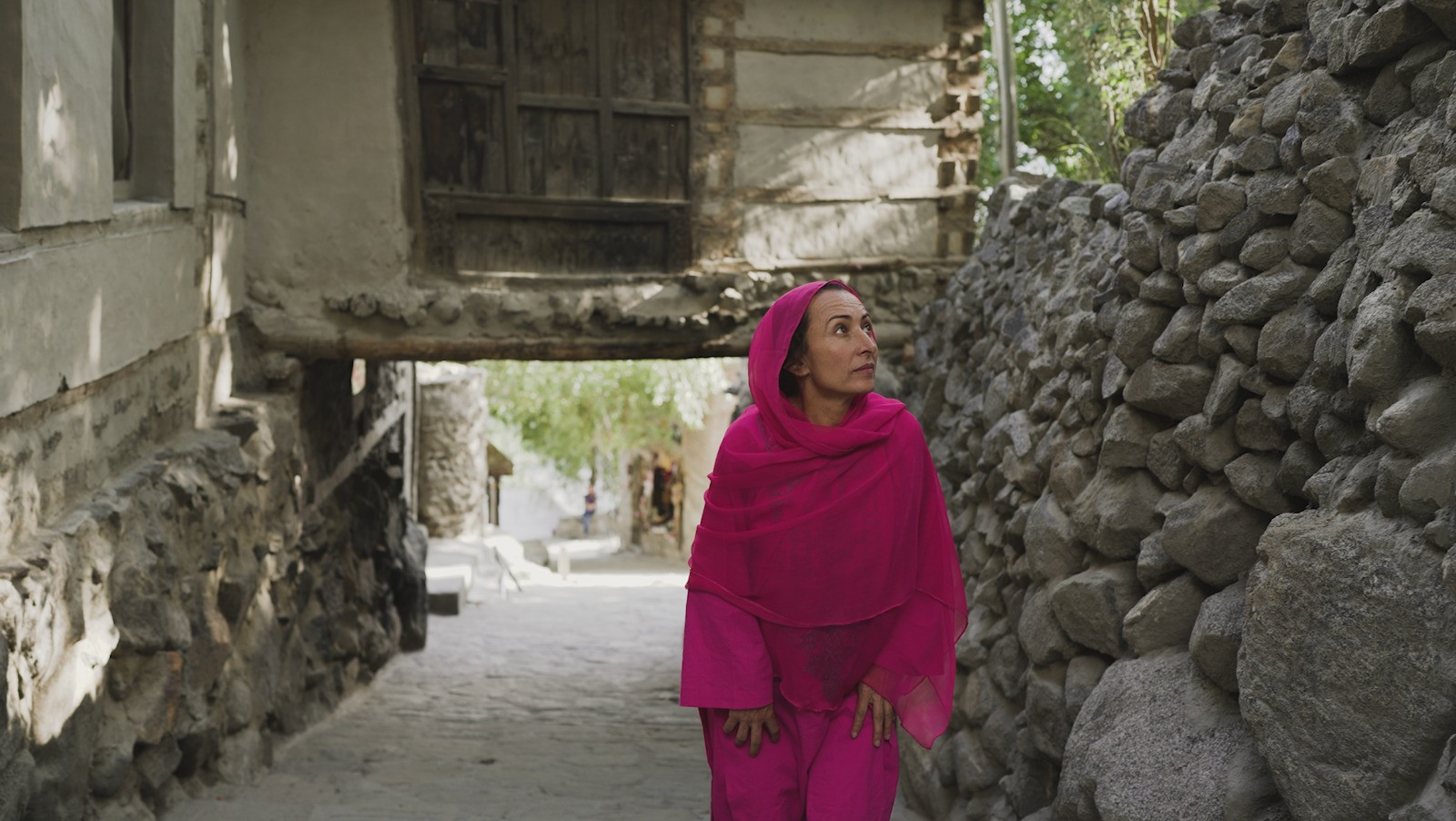
The unified artisan women force of Gilgit-Baltistan collectively contribute to manufacturing these products. Shahida and her peers even drop assignments for ladies to work from home. While these busy bees are creating their pieces of art throughout the year, their selling window which was previously limited to the warm seasons of spring and summer has now been expanded through e-commerce.
Since, their work is highly labour-intensive, time efficiencies need to be planned out for less dependence on machines that are run manually because of the limitation of electricity. Life in Hunza is not always easy considering the lack of basic utilities. Due to low energy production in this area, people only have two hours of power a day. In winter, they burn wood sparingly to generate heat.
The artisans of Gilgit-Baltistan envision streamlined supply chains and even backward integration to manage their variable costs. Due to the limitation of electricity, a cross-stitch weaving cottage industry closed down and these women now cater to orders from Lahore but it adds to their transport cost. Despite, all odds they are determined and content to excel and continue with their routine with a smile.
1699176061-4/WhatsApp-Image-2023-09-04-at-12-38-45-PM-(1)1699176061-4.jpeg)
Leila, a talented young artist from Skardu, decided to create a traditional handmade cap for her daughter since she couldn't find one in the local market. Her motherly love enabled the creation of something that turned out to be a stepping stone for her business, while her daughter was over the moon when the traditional cap was brought into existence through a blend of love and art.
Well aware of the challenges that traditional crafts production faces in terms of staying viable and accessible, especially for locals, not to mention the tourists who seek them out, Leila figured out the convenience being offered on the net both to the seller and the buyer. She identified a market gap and discovered an opportunity to promote their local crafts and grow a customer base extending beyond Gilgit-Baltistan.
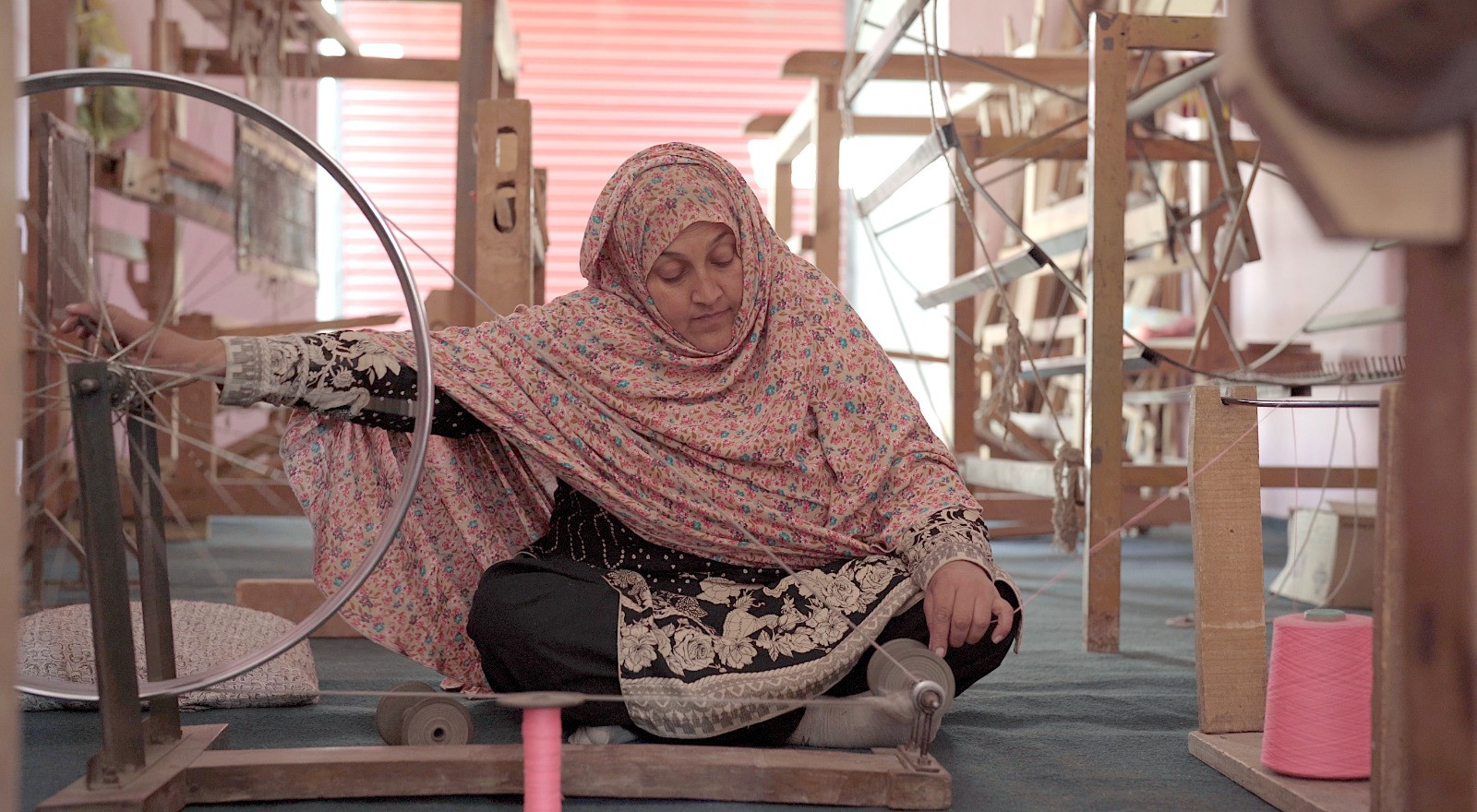
“There are obstacles everywhere, even at home” says Leila. “But once I knew my purpose, I was determined to pursue it, create solid awareness and make our traditional handicrafts accessible to a much wider audience. I wanted people to know the type of needlework being done in Skardu. Imagine I could not find a traditional cap in Skardu despite the fact that it originated here. I made it a mission to preserve and expand the demand for local craft.”
The billowy cherry blossom backdrop became pinker and whiter, as she spoke softly, perhaps knowing that these blooms are a symbol of renewal and the ephemerality of life. She explained how the artisan in her transformed into a business woman. “My business supplies goods for fashion enthusiasts,” she says. “The work involves manual labour, and the basics skills learnt from ancestors help tremendously when it comes to traditional art and culture.”
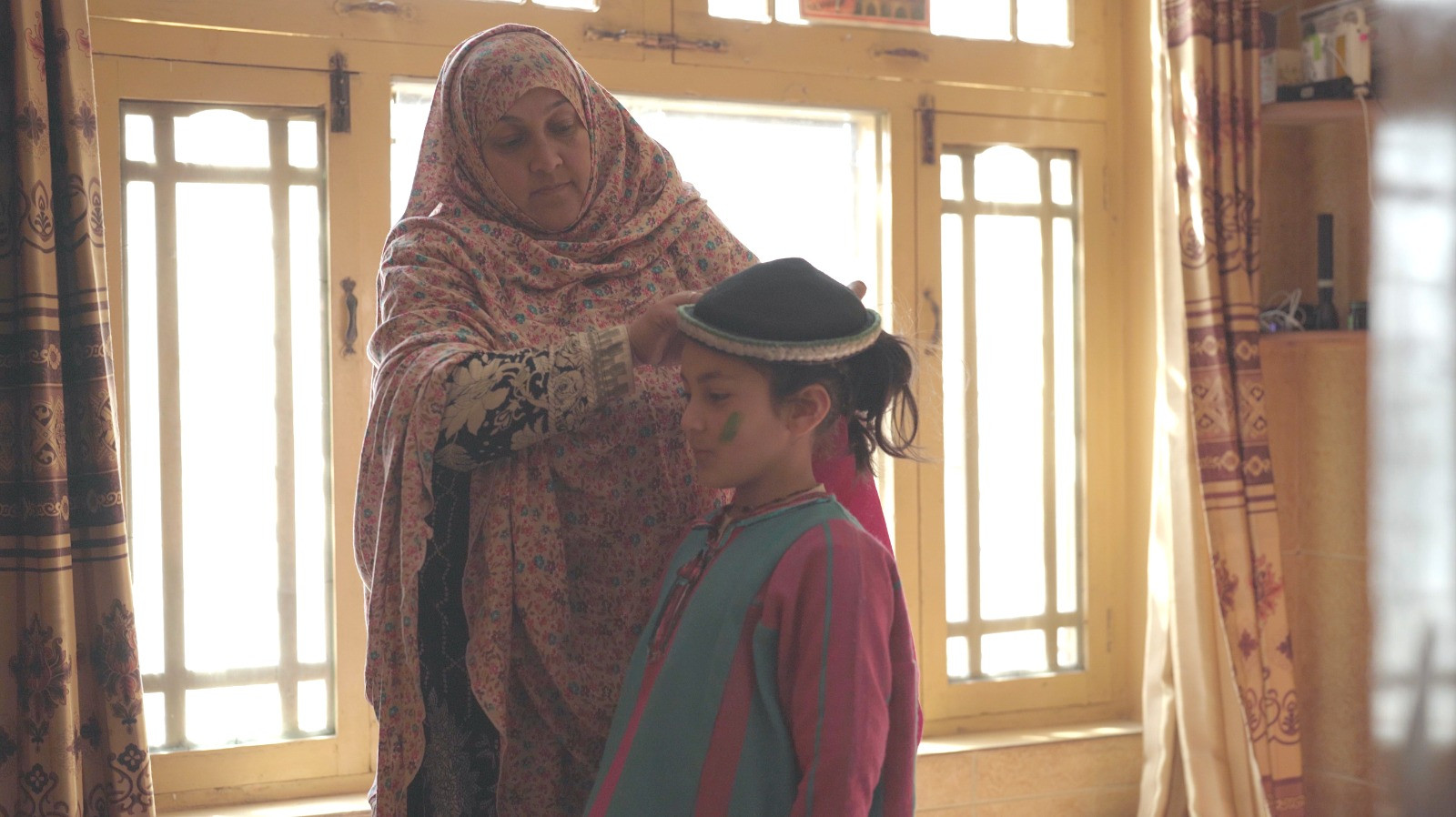
Technology has not just helped huge metropolises such as Karachi or Islamabad but also home-based sellers like Leila who belong to a small city in the middle of nowhere, where internet and electricity are luxurious commodities and people have not yet become highly dependent on automation.
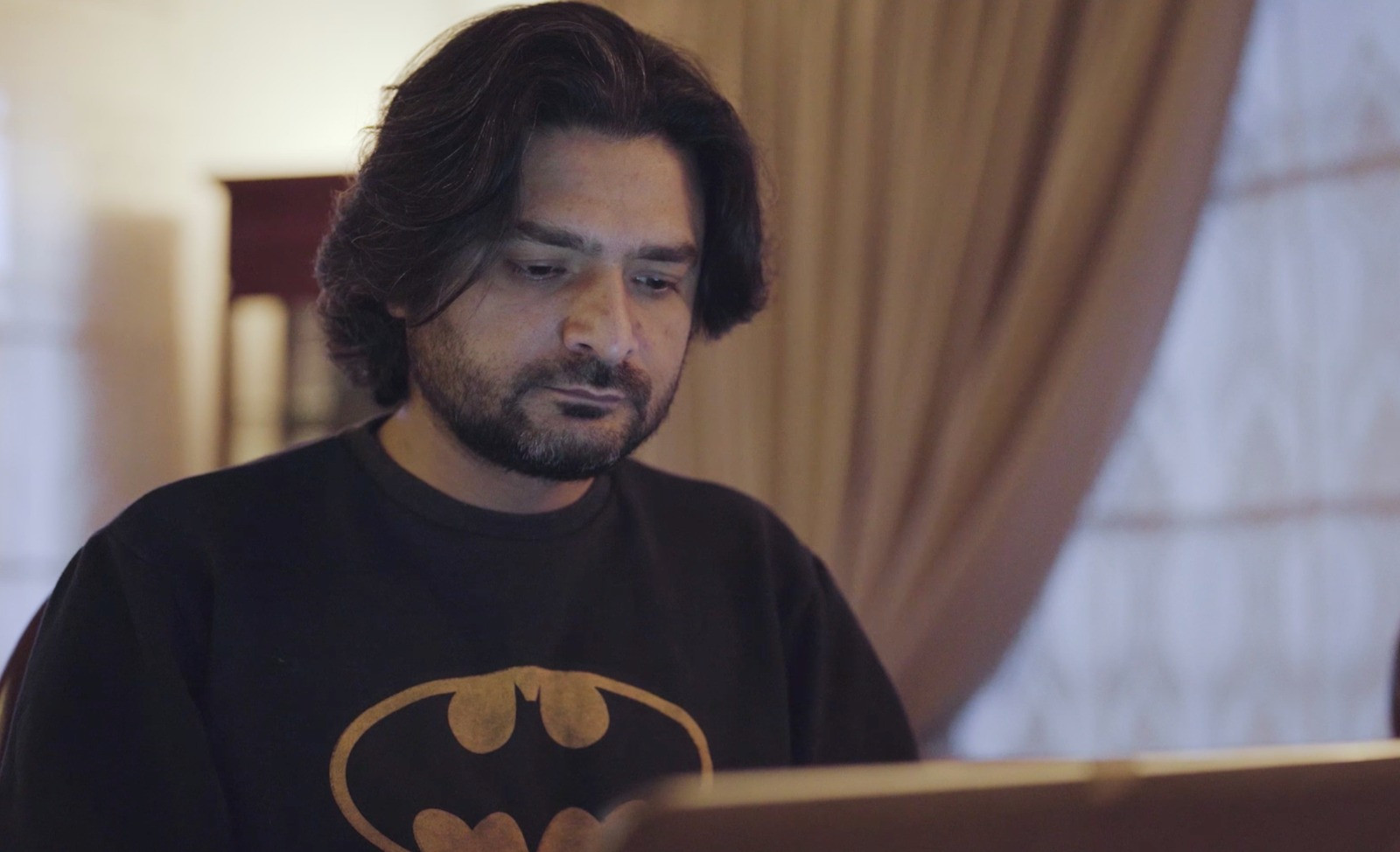
Khalil, an Islamabad-based online seller has worked in the retail sector in Abbotabad and in his 13-year journey, he transitioned from an employee to an entrepreneur. He decided to launch his own business during the pandemic, as e-commerce seemed like the best possible option at the time. Interestingly, the pandemic turned out to be a blessing for him.
Khalil loves traditional and culturally rich handicrafts, which he discovered during his domestic travels through Sindh, Quetta, and Kashmir. Starting with baby steps, he launched himself by registering as an e-commerce seller. He chose this niche for the products he wanted to sell and carved out a market accordingly. Receiving merely 15 orders in the first month of starting his business, presently, he has expanded Zenz to over 300 plus orders a month. While honesty and quality work as a great combination for success even for online sales, he believes in the power of visuals that can be achieved with good product photography.
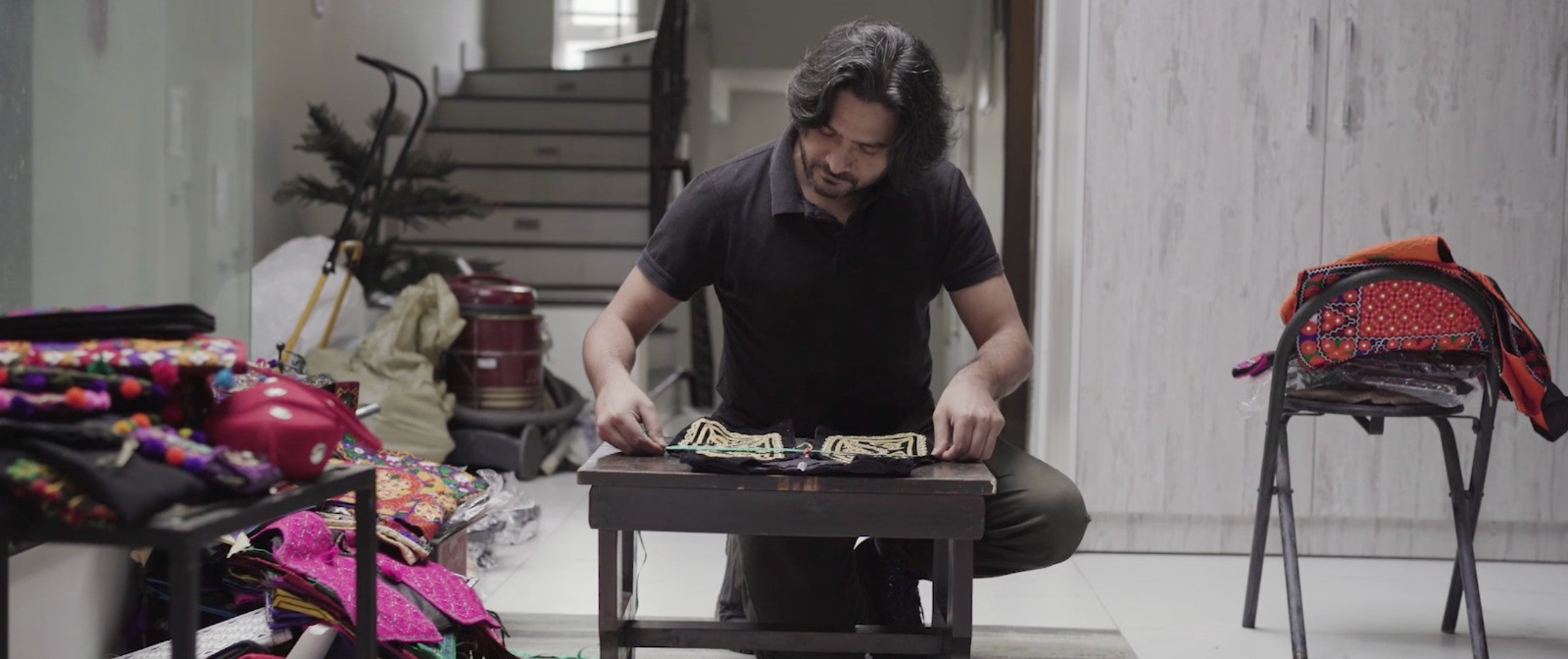
‘I want our cultural handicrafts reach people all over the country through the ease of e-commerce,” says Khalil. “I receive orders from different corners of Pakistan, some that I never expected to reach out to on my own. It is crucial to me that my business positively impacts the skilled artisans involved in my success story. Otherwise, it would kill the very purpose of my business as I am a staunch believer in enabling people to grow through the progress you achieve for yourself,” he says. For him fair dealing with the customer maintains a balance and facilitates the road to success.
Pakistan’s e-commerce market is growing rapidly with an annual growth rate of 6.23%, thanks to the pandemic for the initial push. Some 8.4% of internet users make weekly online purchases with the rate of adoption rising rapidly.
1699176061-8/WhatsApp-Image-2023-09-04-at-12-58-45-PM-(1)1699176061-8.jpeg)
Considering the popularity of social media, businesses such as these have leveraged various platforms to penetrate the market and grow their customer base while previously ease of access was a challenge for the end consumer. This is where e-commerce turned out to be a boon that helped develop a market for Shahida and her peers so that their handicrafts are accessible in every nook and corner of Pakistan where elegant Hunza products were unheard of previously and acquiring these treasures meant travelling all the way to Hunza.
Heba Moeen is a communication professional, an artist and a wildlife photographer. She can be reached at moeen.hiba@gmail.com
All facts and information are the sole responsibility of the writer
